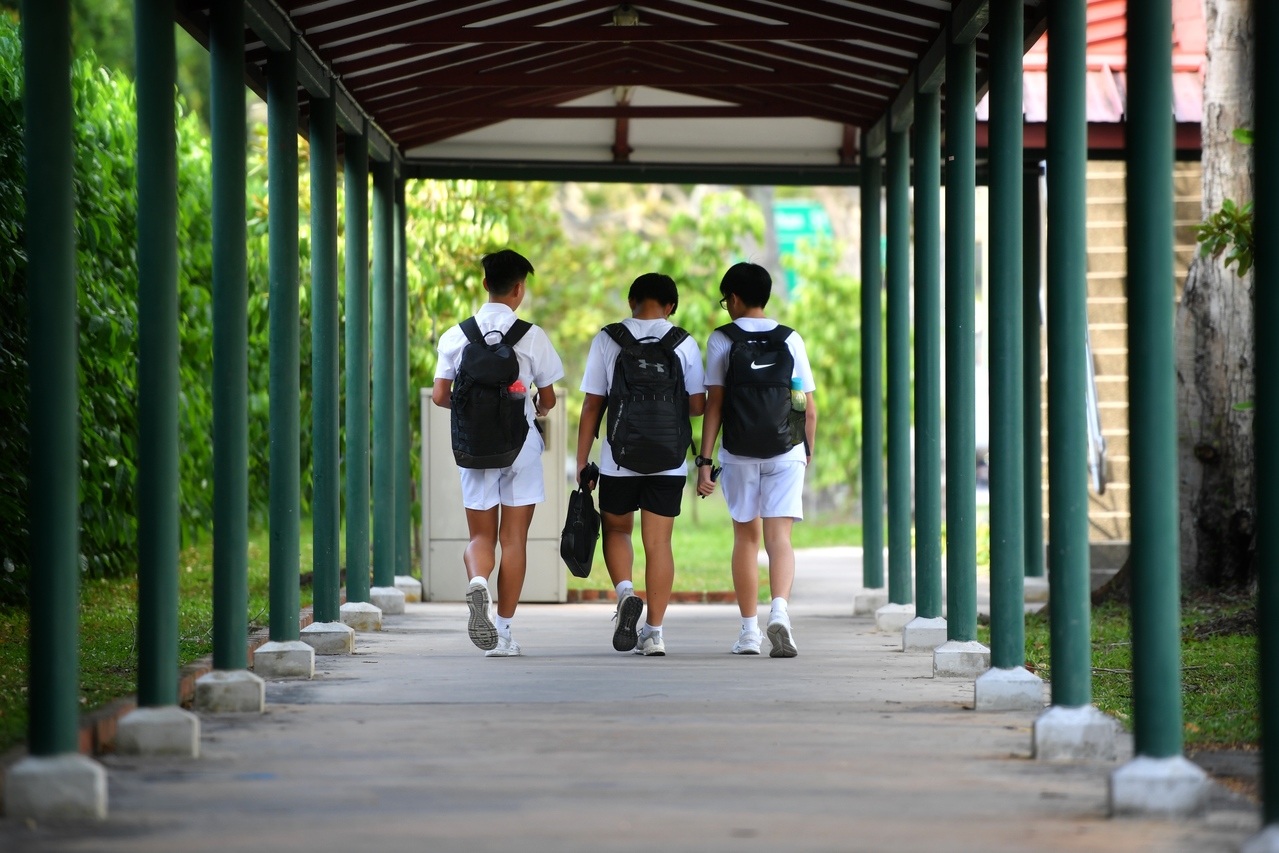Parliament: MPs call for revamp of education system, digital literacy for students
Sign up now: Get ST's newsletters delivered to your inbox

Mr Ang Wei Neng (Jurong GRC) called on the ministry to look at making character and citizenship education - an important part of education that can be misconstrued by some students as a chore or even propaganda -more engaging and robust.
ST PHOTO: CHONG JUN LIANG
SINGAPORE - A new map, that boldly sets out ways to transform Singapore's education system for a technological future with lifelong learning, is needed, said Ms Denise Phua (Jalan Besar GRC) on Tuesday evening (March 3).
It would be akin to the existing Industry Transformation Maps that "force" industry leaders to study the current and future landscape and review their vision, she told the House in a speech that started the debate on the Ministry of Education (MOE) budget.
She said:"We need to be bold enough to honestly ask what our education system should look like; and decide where we should re-design, re-skill and better resource.
"We need to bring on board more Singaporeans to help understand the aspirations, demands and challenges we face and will face."
The move to transform the system is imperative, she suggested.
"We cannot ignore the larger elephants in the room such as the still growing and increasingly market-responsive tuition industry; and the continuing excessive focus on the academic rat race.
"We cannot keep tweaking the system and hope that age-old mindsets and habits will disappear," added Ms Phua, who chairs the Government Parliamentary Committee for Education.
More than 20 MPs rose to speak on a host of issues that range from cyber wellness and mental health to the professional development of teachers.
Mr Murali Pillai (Bukit Batok) wants more students to be given opportunities to learn the languages of the Asean countries.
Currently, the MOE Language Centre provides Malay (Special Programme) and Indonesian languages as third language options, but these are only for students ranked in the top 10 per cent of their Primary School Leaving Examination cohort, he noted.
He suggested that "less rigorous spoken Asean language courses" be extended to interested students. "(It) will greatly facilitate the students' learning experience and enhance job opportunities for them in the Asean region."
Mr Ang Wei Neng (Jurong GRC) called on the ministry to look at making character and citizenship education - an important part of education that can be misconstrued by some students as a chore or even propaganda -more engaging and robust.
One way to do it, he suggested, is to discuss current events, like the challenges posed by the Covid-19 outbreak and how communities can respond.
Such relatable content would make character and citizenship education lessons " less of a chore" to students, he added.
"It would also enable teachers to more effectively guide students towards making sound moral judgments, and be motivated to contribute to society."
Five MPs urged the ministry to equip students with digital literacy and thinking skills to help them navigate technological change.
Non-Constituency MP Leon Perera said nurturing critical thinking skills is of "paramount importance" in a changing world economy where increasingly, technology, not humans, will carry out the basic types of intellectual work.
He cited the Theory of Knowledge subject in the International Baccalaureate (IB) programme as a way to nurture such thinking skills.
Has the ministry examined such modules, he asked, "to enhance teaching approaches in this regard as most students are not in the IB programme".
Dr Intan Azura Mokhtar (Ang Mo Kio GRC), an educator,suggested that digital and information literacy be included in school syllabi, to be taught and learnt as a subject or as part of a school project.
"(It) essentially involves applied skills and knowledge, hence they cannot be taught in silo and has to be contextualised," she added.
Students will also need at hand electronic devices such as laptops, tablets and smart phones with Internet access, she said, adding that less well-off students will need support.
Ms Cheng Li Hui (Tampines GRC) asked about plans to deepen digital capabilities in the institutes of higher learning, including building stronger artificial intelligence (AI) competencies.
"We need to better prepare young Singaporeans for an increasing number of sectors that require advanced AI-related competencies such as digital finance and cyber-security," she said.


